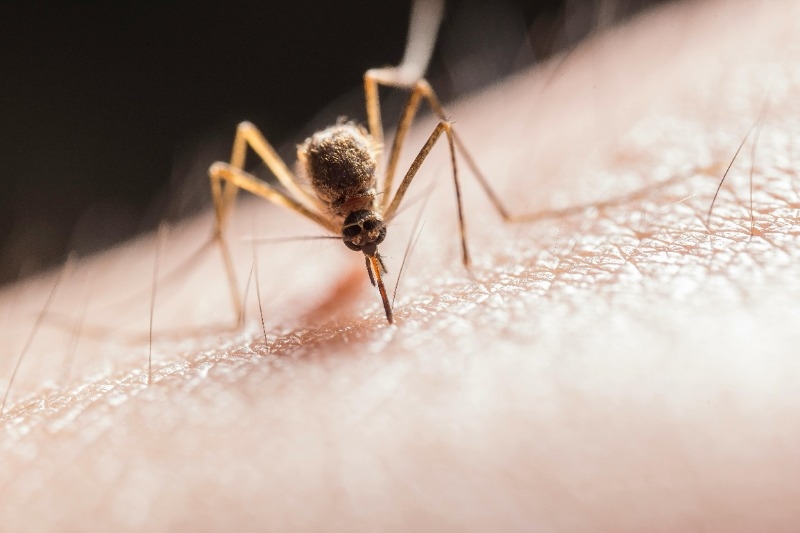Fight the Bite! West Nile Virus found in Adams County Mosquitoes
August 06, 2025
Hastings, Nebraska - The South Heartland District Health Department (SHDHD) reports that collections of Culex mosquitoes trapped in Adams County on July 29, 2025, have tested positive for West Nile Virus (WNV).
SHDHD health director Michele Bever, PhD, MPH, reminds residents that WNV is spread to humans through the bite of an infected mosquito. She encourages South Heartland residents to ‘Fight the Bite’ to reduce the risk of infection.
In 2024, 92 Nebraskans experienced symptomatic WNV illness according to NDHHS, with 50 of these experiencing neuroinvasive illness (affecting the nervous system). This was a decrease from the 150 clinical cases reported in 2023 (91 neuroinvasive, 56 non-neuroinvasive). This year (2025), to date, there have been fewer than 5 cases so far. See NDHHS West Nile Virus Surveillance Data webpage for more information: https://dhhs.ne.gov/Pages/West-NileVirus-Data.aspx.
Symptoms of West Nile illness are usually mild, including fever, headache, body aches, nausea, vomiting, and sometimes swollen lymph glands or a skin rash. However, the symptoms may be more severe, sometimes causing permanent neurological damage, and may result in death.
Bever explained how to prevent mosquito bites: “The best way for us to fight WNV is to avoid mosquito bites. Try not to be outside from dusk to dawn, when mosquitoes are most active. We should protect ourselves from mosquito bites by wearing lightweight protective clothing and by using an EPA-registered insect repellent containing DEET, IR3535, oil of lemon eucalyptus or Picaridin,” Bever said.
South Heartland works with the Nebraska Department of Health and Human Services (NDHHS) to trap and test mosquitoes in the counties designated by NDHHS (Adams County for this health district), then shares the results with the City of Hastings.
SHDHD also partners with the City of Hastings on the area’s mosquito surveillance program. Jeff Hassenstab, director of Parks & Recreation for the City of Hastings, said “The City of Hastings uses the information we receive from the health department to help make decisions about mosquito control efforts. Residents should also take their own precautions against mosquito bites,” he said.
Bever and Hassenstab encourage residents to drain outdoor containers and other standing or stagnant water around their homes about once every week to disrupt the breeding cycle of mosquitoes. This includes kid’s swimming pools, birdbaths, pet bowls, and other containers that can hold water.
For more information, call 1-877-238-7595.


 Launch the media gallery 1 player
Launch the media gallery 1 player